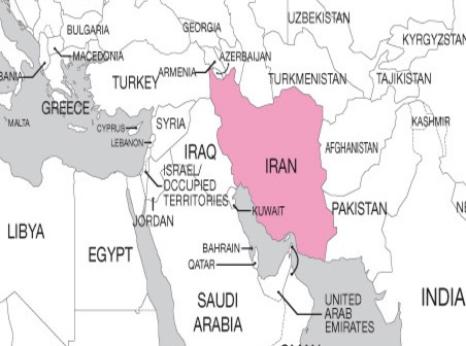Iran: Grave Risk Of Executions In Relation To Protests

The trials of individuals for capital offences in connection with the nationwide protests have borne no resemblance to meaningful judicial proceedings. The authorities have relied on torture-tainted “confessions” and other evidence obtained in violation of international law and standards to indict and convict people. Individuals have been barred from accessing any lawyers during the investigation phase. Authorities also barred independently appointed lawyers from attending trial hearings and accessing their clients’ casefiles. The right to the presumption of innocence has also been repeatedly violated with state media airing defendants’ forced “confessions” prior to their trials. The authorities have fast-tracked capital cases, with some individuals convicted days after their trials began. These trials took place across the country including Alborz province for Mohammad Boroughani and Mahand Sadrat (Sedarat) Madani; Esfahan province for Majid Kazemi, Saleh Mirhashemi and Saeed Yaghoubi; Khuzestan province for Mojahed (Abbas) Kourkour; Sistan and Baluchistan province for Ebrahim Narouie, Mansour Dahmardeh, Kambiz Kharout, Shoeib Mir Baluchzehi Rigi, Mansour Hout and Nezamoldin Hout; and Tehran province for Manouchehr Mehman Navaz, Mohammad Ghobadlou, Saeed Shirazi, Abolfazl Mehri Hossein Hajilou and Mohsen Rezazadeh Gharegholou. Of the eight individuals under sentence of death, at least four were sentenced to death for offences such as vandalism, assault and arson in violation of international law which prohibits the death penalty for offences that do not involve intentional killing.
Amnesty International has documented the torture and other ill-treatment of six individuals under sentence of death to extract forced “confessions”, namely Ebrahim Narouie, Kambiz Kharout, Mansour Dahmardeh, Mohammad Ghobadlou, Mojahed (Abbas) Kourkour and Shoeib Mir Baluchzehi Rigi. According to informed sources, interrogators subjected Ebrahim Narouie, who was convicted of “corruption on earth” (efsad-e fel arz) in late 2022, to torture and other ill-treatment, including through sticking needles into his genitals, to compel him to make forced “confessions” in writing and in front of a video camera. An informed source also told Amnesty International that the authorities repeatedly beat Mohammad Ghobadlou, whose conviction for “corruption on earth” and death sentence was upheld by the Supreme Court in December 2022, and withheld his bipolar medication. A forensic report confirms that while in custody, he sustained bruising and injuries.
To date, the authorities have arbitrarily executed seven people in connection with the protests after grossly unfair trials marred by torture allegations. On 19 May 2023, Iranian authorities executed Majid Kazemi, Saleh Mirhashemi and Saeed Yaghoubi, who were put on trial in December 2022 and January 2023 and sentenced to death on the vaguely worded and overly broad charge of “enmity against God” (moharebeh). The authorities imposed the charge based on unfounded allegations stemming from torture-tainted “confessions” that the men used firearms in an incident during protests during which three members of the security forces died. However, they did not charge them or convict them of murder for these deaths. On 10 May, the authorities announced that their convictions and sentences had been upheld by the Supreme Court despite due process violations, significant procedural flaws, lack of evidence, and torture allegations that were never investigated. Amnesty International obtained information that the three were subjected to torture while forcibly disappeared and forced to make incriminating statements. Interrogators suspended Majid Kazemi upside down and showed him a video of them torturing his brother and repeatedly subjected him to mock executions.
Since the beginning of the popular uprising in September 2022, the authorities have arrested and indicted thousands of people, raising concerns about the imposition of the death penalty on more individuals. In addition to the aforementioned individuals, Amnesty International has confirmed the names of at least 16 others – Toomaj Salehi, Farzad (Farzin) Tahazadeh, Farhad Tahazadeh, Karwan Shahiparvaneh, Reza Eslamdoost, Shahram Marouf-Moula, Pouria Javaheri, Heshmatollah Tabarzad, Bahman Bahmani, Mohsen Ahmadpour, Behrouz Salahshour, Rasul Badaghi, Vahid Abbasi, Reza Arabpour, Sadegh Ghasemi and Ismail Mousavi Nazari – who are in detention and are accused of, charged with or indicted on capital offences.
Since late April 2023, the Iranian authorities have embarked on an alarming execution spree of scores of people, intensifying their use the death penalty as a tool of repression in an attempt to instil fear into the population and crush ongoing acts of resistance against the authorities and establishment.